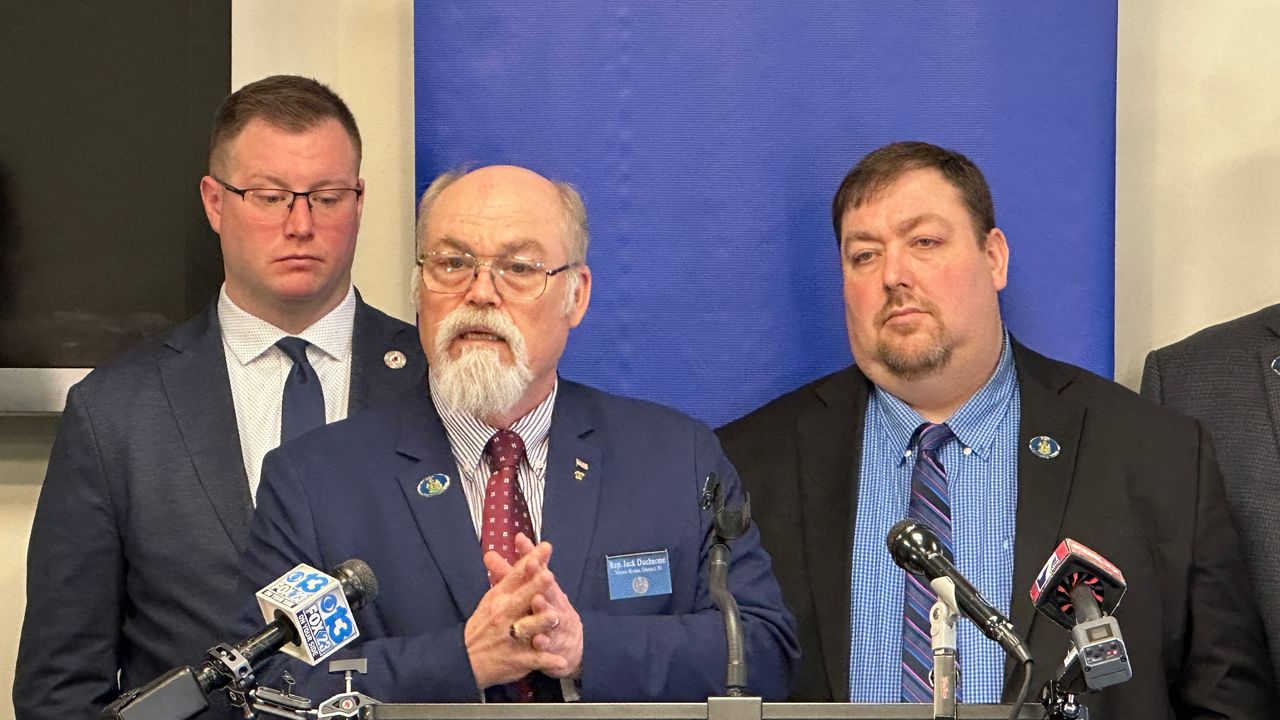Maine Republicans on Tuesday sounded the alarm on two bills they say could raise taxes on property owners and those who use streaming services.
One bill, LD 2102, seeks to repeal language agreed to by both parties in 2005 that sets a cap on municipal property taxes.
Assistant House Minority Leader Rep. Amy Arata (R-New Gloucester) said the bill came forward after the town of Gray struggled to get local voters to approve a request to override the limit.
“LD 2101 will punish property taxpayers throughout the whole state because some local officials in one town are disgruntled because their budget didn’t pass back in 2020,” she said. “Local officials have responsibility to budget within the limits given to them and if they can’t do so, they owe a clear explanation to voters about why they should vote to override that limit.”
The bill is backed by the Maine Municipal Association, which said the current system of requiring voter approval to exceed the limit is confusing and difficult to calculate.
Gray Town Council Chairwoman Krista Chappell told lawmakers in February that the law passed in 2005 was intended to keep property taxes low. However, it has created mistrust in her town and increased costs because they’ve had to hold repeat votes to get a budget approved.
Because the question put before voters isn’t always clear, she said, “it has been implied that the town is somehow inappropriately allocating funds, squirreling them away for some illicit use. In these heightened times, this misperception only further erodes trust in government.”
The bill was tabled in the Senate last week, following a floor speech by Sen. Peter Lyford (R-Eddington) who said it strips away the power of residents to keep a check on spending.
During their weekly briefing, Republicans also raised questions about part of the governor’s proposed budget that seeks to levy a 5.5% tax on streaming services.
“Online streaming subscriptions are not taxable in Maine,” said Sen. Jim Libby (R-Standish).
But Libby said the budget includes language to tax music, Hulu, Netflix or other streaming services on top of the cost of the subscription.
In response, a Mills administration spokeswoman said that the budget proposes to repeal a 6% tax on telecommunications and cable services and replace it with a 5.5% tax that will apply to those companies and digital streaming services so they are all taxed the same.
The administration sees it as a way to more equitably tax all different types of services that provide the same or similar content, including movies, songs and games regardless of how they are delivered, Sharon Huntley, director of communications for the Department of Administrative and Financial Services said via email.
The proposal dates to 2017 under former Gov. Paul LePage and was again proposed by Gov. Janet Mills in 2020, Huntley said.
She said 25 states have similar taxes, while 20 states do not.
Republicans say with another projected budget surplus and more budget changes to come, it’s unnecessary to expand the tax to cover streaming services.
“The last thing we need is any sort of new tax,” said Senate Minority Leader Trey Stewart of Presque Isle said. “It is not that the people are not taxed enough. It is that the government spends too much.”



